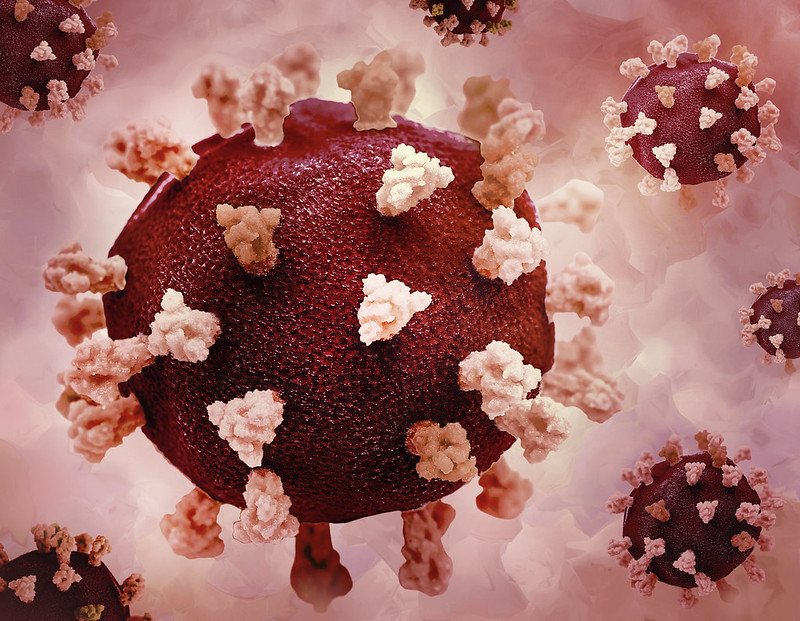An estimated 65 million people globally suffer from long COVID. In low- and middle-income countries, a chronic lack of resources leaves millions without access to the care and research advancements needed to address the persistent and widespread challenges of this condition.
The Schmidt Initiative for Long Covid set an ambitious goal: to create systemic, global solutions for people with long COVID, alleviating suffering and enabling better care and treatment worldwide. Recognizing the need to spread knowledge quickly and efficiently, SILC partnered with Project ECHO as its inaugural grantee, leveraging its innovative telementoring model for training and collaboration.
“We are committed to reaching health care providers at every level—village health workers, clinicians and policymakers—because addressing long COVID requires a truly global and inclusive effort,” says Dr. John T. Redd, CEO of SILC. “The ECHO Model stood out as a scalable and rapid solution that allows us to deliver high-impact training with minimal infrastructure.”
Through this partnership, SILC and Project ECHO have launched a series of initiatives on long COVID to educate providers and improve care delivery. These include: monthly global webinars on best practices in collaboration with the World Health Organization, and nine regional virtual “communities of practice” tailored to meet local needs in Africa, Georgia, India and Latin America.
Building Capacity, Raising Awareness and Improving Care
In Zambia, SILC’s collaboration with the Ministry of Health is transforming long COVID care delivery. “As a country, we realized early in the pandemic that COVID’s effects extended beyond the acute phase. SILC’s support has helped us build capacity to diagnose and treat long COVID, including providing critical equipment including lung function monitors and training providers through ECHO’s network. This initiative has also enabled us to conduct research and set up post-COVID clinics, improving outcomes for patients across Zambia,” says Dr. Lloyd Mulenga, director for infectious disease for Zambia’s Ministry of Health.
The initiative has not only improved diagnostic accuracy, but also introduced new treatments for mental health and physiological complications of long COVID. ECHO’s network has fostered collaboration between Zambian providers and their counterparts in South America and the United States, creating a global platform for knowledge exchange.
A Global Platform for Collaboration
In Côte d’Ivoire and across Francophone Africa, SILC’s work has helped health care leaders address skepticism about long COVID and improve recognition of its symptoms. “Before SILC, long COVID was not seen as a priority. But through ECHO sessions, including case studies led by experts from Francophone Africa and the U.S., we’ve legitimized the disease and improved diagnostic capacity,” says Konan Alphonse, a local consultant working with Project ECHO.

A close-up of colorized 3D SARS-CoV-2 virus particles, the pathogen responsible for COVID-19 and linked to ongoing health effects in long COVID cases. Image Credit: National Institute of Allergy and Infectious Diseases
This sentiment is echoed worldwide. Providers trained through ECHO now report greater confidence in addressing complications including cardiac issues, cognitive impairment and respiratory distress. SILC has also empowered regional leaders to expand networks of care, enabling access to specialists and fostering innovation in post-COVID treatment.
A Vision for Systemic Impact
SILC’s partnership with Project ECHO underscores the transformative potential of education and collaboration in addressing complex health challenges. By training thousands of providers globally and fostering connections across regions, SILC is not only improving long COVID care, but also building stronger, more resilient health systems.
“SILC has given us the tools to address long COVID at its roots—through education, awareness and collaboration,” says Dr. Redd. “This is how we create lasting change in global health as we work toward a world without long COVID.”
As the SILC and Project ECHO collaboration continues to expand its reach, its work exemplifies how strategic partnerships and innovative models can tackle even the most daunting global health challenges.
Discover how the Schmidt Initiative for Long Covid is transforming global health care and empowering providers in underserved regions through programs including the Global Long COVID Webinar Series. For more information, email the program team.
Editor’s Note: SILC uses the style point “Long Covid,” while Project ECHO uses AP Style (“long COVID”). We are using both in this story in deference to SILC’s name while adhering to AP Style in the body copy.
Featured Image: Stock photography captured in Côte d’Ivoire for Project ECHO by photographer Mme Yao Chantal.

